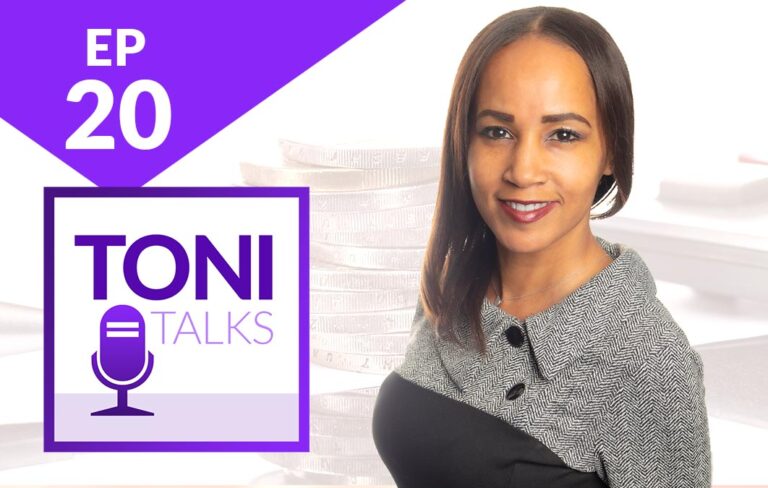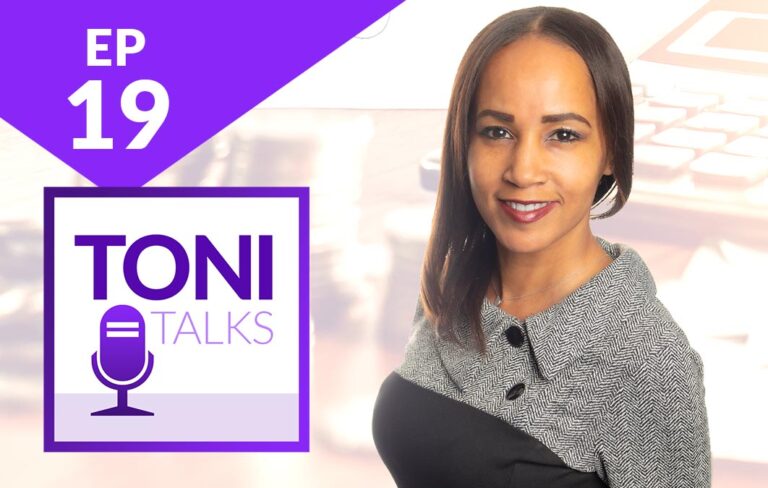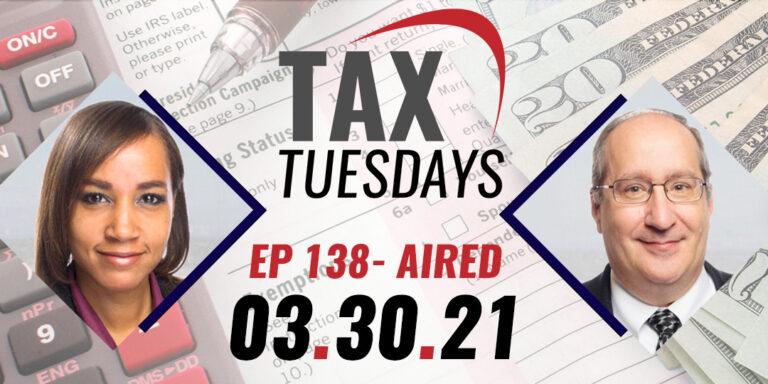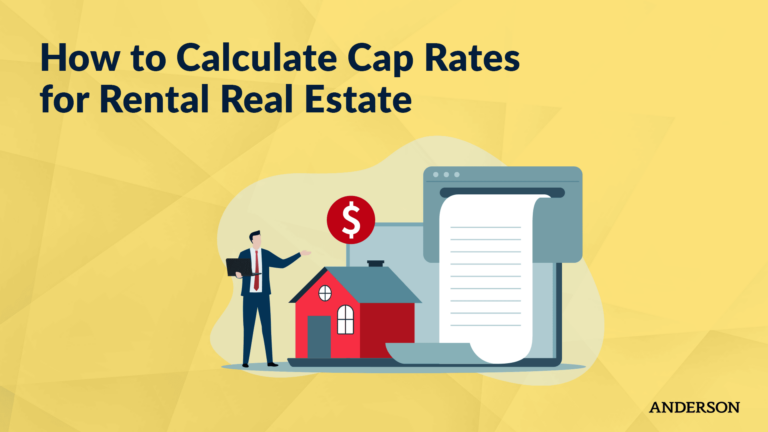What’s a 1031 Exchange and What Qualifies for a 1031 Exchange?
In this episode of Toni Talks, Toni Covey, EA, is joined by special guest Jarom Hillery, Esq., to cover everything you need to know about using 1031 exchanges.
Updated May 25, 2021
The 1031 exchange: What is it? What qualifies? And what’s taxable during a 1031 exchange?
What Is a 1031 Exchange?
In short, it’s a special type of real estate transfer where you get to delay or postpone having to pay the capital gains on the sale of a property.
For example, if you bought a property for $100,000 and now it’s worth $300,000, normally you’d have to pay income tax on that difference if you decided to sell. In this case, you’d owe taxes on $200,000.
The 1031 exchange offers you an alternative by allowing you to defer capital gains tax, and thus frees up more capital for investment in the replacement property.
Rather than paying taxes on that $200k upfront, you can buy a new investment property that’s worth the same amount as the original (or multiple, as long as the total value is the same) and defer the capital gains on the sale of the original since you’re “exchanging” it for another property of equitable value.
So it’s a deferral, not a freebie.
With the Tax Cuts and Jobs Act from 2018, the 1031 exchange became exclusive to real property used for business or as an investment — meaning, it won’t apply to your residence, vacation homes, or flip properties.
Why can’t I do a 1031 exchange for a flip property?
Through the eyes of the IRS, you purchased that property with the intent to sell it, categorizing it as inventory. Inventory is not eligible for a 1031 exchange.
It has to be a capital asset if you will own real property.
Another frequently asked question we get is, if you move to different states, for example, from Florida to California, can you use a 1031 exchange?
Yes. You can take an empty lot of land in Kentucky and exchange that for a commercial real estate building in Washington state, for instance.
What Qualifies for a 1031 Exchange?
To receive the full benefit of a 1031 exchange, your replacement property should be of equal or greater value. You must identify a replacement property for the assets sold within 45 days and then conclude the exchange within 180 days.
Another item to note when considering what qualifies for a 1031 exchange is, how many properties can I receive in exchange?
So the rule here is, you can exchange 10 properties from one property, or you can exchange one property for 10, so long as the exchange for a property is of equal or greater value than the property that you’re giving up.
Boiling it down, the real property that qualifies for a 1031 exchange is property used for business or investment within the U.S. and it doesn’t matter the number of properties we’re talking about as long as it’s of equal or greater value.
But who qualifies for a 1031 exchange? Who can do a 1031 exchange?
Well, it’s pretty much any taxpayer. If a corporation wants to move its storage facility from Nevada to Idaho, it can do that using a 1031 exchange. Individuals can do a 1031 exchange, and married couples can also do a 1031 exchange.
However, when you acquire the new property (the replacement property), it’s going to have to be within the same taxpayer category as the property that was given up. So, if I had a C-corporation and I did a 1031 exchange in that C-corporation, I’m going to have to sell the property out of that C-corporation and acquire the replacement property in that C-corporation.
Properties must be similar enough to qualify as “like-kind.” Like-kind property is a property of the same nature, character, or class. The quality or grade of the property doesn’t matter.
Real property and personal property can both qualify as exchange properties under Section 1031, but real property can never be like-kind to personal property.
Certain types of property are specifically excluded from 1031 treatment. A 1031 exchange does not apply to exchanges of:
- Inventory or stock in trade
- Stocks, bonds, or notes
- Other securities or debt
- Partnership interests
- Certificates of trust
What is a Qualified Intermediary?
A qualified intermediary is a person who is not the taxpayer, not an agent of the taxpayer, or any other disqualified person. This means that, if Anderson is the law firm you’re using, we can’t do it because we’re an agent for you.
Also, there has to be a written agreement that outlines the transaction in terms of the sale of the property and the purchase of the replacement property, with the funds that were involved there listed.
While there is no actual requirement to have a qualified intermediary, I can’t stress enough the importance of going forward with using a qualified intermediary as a safe harbor when doing the 1031 exchange.
One very big reason why is because if you or even an agent for you were to accept any cash in this deal during the transaction, you disqualify the 1031 exchange immediately.
So you want to use that qualified intermediary to be the recipient of those funds and hold those funds during the time period in which you are executing the exchange.
If you were to receive cash after the exchange was executed, then that cash is going to be taxable. However, if you received the cash before the exchange is executed, it disqualifies the entire exchange.
What Are the Time Limits to Complete a 1031 Exchange?
So let’s talk about the timelines that come along with this.
The first limit is that you have 45 days from the date you sell the relinquished property to identify potential replacement properties.
That “identification” must be in writing, signed by you, and delivered to a person involved in the exchange, like the seller of the replacement property or the qualified intermediary.
Replacement properties must be clearly described in the written identification. In the case of real estate, this means a legal description, street address, or distinguishable name.
Make sure to follow the IRS guidelines for the maximum number and value of properties that can be identified.
The second limit is that the replacement property must be received and the exchange completed no later than 180 days after the sale of the exchanged property or the due date (with extensions) of the income tax return for the tax year in which the relinquished property was sold, whichever is earlier.
The replacement property received must be substantially the same as property identified within the 45-day limit described above.
And it’s important to remember, the whole idea behind a 1031 exchange is that you didn’t receive any of the money from the sale, so there’s no income to tax. So, taking control of the cash or other proceeds before the exchange is done may disqualify the deal and make your gain immediately taxable.
The Takeaway
Overall, an important thing to keep in mind about 1031 exchanges is you still have to pay tax, just later.
A 1031 exchange doesn’t make capital gains tax go away; it just postpones it.
If you’d like to discuss your usage of 1031 exchanges or any investment questions you may have in greater detail, I encourage you to schedule a complimentary Strategy Session today. On the call, you and the Advisor will discuss your current investing methods and future goals, then build out a custom entity structure to lower your tax liability and streamline your business. You can schedule online or by calling 888.871.8535.
Bonus Video
Free Strategy Session with an Anderson Advisor
Receive a detailed risk assessment to assist in lowering problem areas that could wipe out all of your assets with one wrong move. Speak with an Anderson Professional Advisor to get your FREE Strategy Session. Limited-Time Offer: FREE (a $750 value.)















